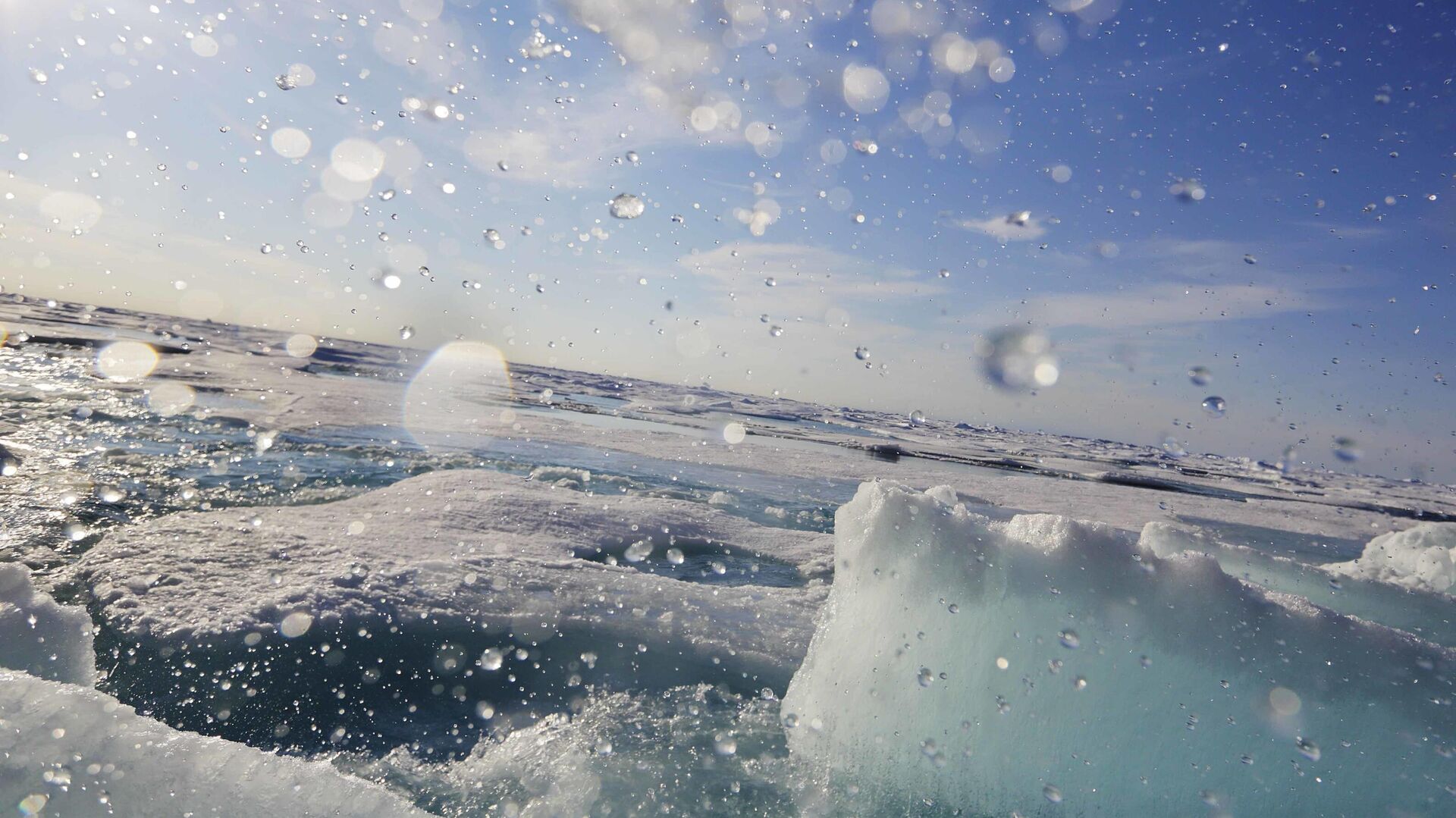https://sputnikglobe.com/20240317/record-ocean-heat-over-the-last-year-worries-scientists-as-they-seek-answers-1117379591.html
Record Ocean Heat Over the Last Year Worries Scientists as They Seek Answers
Record Ocean Heat Over the Last Year Worries Scientists as They Seek Answers
Sputnik International
If ocean temperatures continue to surge the planet will see the continuation of events experienced in 2023 such as: coral bleaching, more intense and fast-developing hurricanes, an increase in coastal temperatures and heavy rainstorms.
2024-03-17T06:00+0000
2024-03-17T06:00+0000
2024-03-17T06:00+0000
beyond politics
extreme weather
extreme weather conditions
heat
global warming
world
ocean
https://cdn1.img.sputnikglobe.com/img/07e8/03/11/1117379778_0:205:3172:1989_1920x0_80_0_0_a80297ed524bc1889d5ee66abeffb0f9.jpg
A recent report found that everyday for the last 12 months the world’s sea surface temperatures have broken records. Today, the average sea surface temperatures are about 1.25 degrees Fahrenheit higher than they were from 1982 to 2011, according to the University of Maine’s Climate Reanalyzer.Temperatures reached nearly 21 degrees Celsius in mid-March of last year. On Sunday, that record was broken once again when temperatures climbed to 21.2 degrees Celsius. At the same time in 1985, temperatures rested at 20.1 degrees Celsius. Water is more able to absorb and store heat than air does. However, scientists had not predicted that the seas would warm this much in such a short period of time.Europe’s Copernicus satellite monitoring programme also found that sea surface temperatures in February were hotter than any month in history and broke records set last August.Our planet’s waters are also responsible for moderating and absorbing more than 90% of human-caused global warming. In 2023 the world’s oceans absorbed more heat than in any other year since records began.While human-caused climate change is responsible in part for this warming event, it isn’t the only factor, researchers say. Climate models have predicted a steady rise in sea surface temperatures, but none that have seen a rise this sharp. Natural climate patterns like El Niño and La Niña have also had an effect on ocean surface temperatures.El Niño is reaching its end, though, so researchers have hypothesized other factors that could be affecting these rising temperatures. Celeste Saulo, the World Meteorological Organization’s secretary general said that El Niño contributed to making 2023 the warmest year on record, though the primary cause was emissions from fossil fuels.The National Weather Service’s Climate Prediction center has also said that there is a 62% change of La Niña developing in late spring. La Niña typically suppresses hurricane activity in the central and eastern Pacific basins, and enhances it in the Atlantic basin, the service explains.Brain McNoldy, a senior research associate at the University of Miami Rosenstiel School of Marine, Atmospheric, and Earth Science, said that the weakening of trade winds in the North Atlantic could also play a role in the heat. These trade winds are responsible for blowing dust from Africa’s Sahara Desert toward North America and that dust can help absorb the sun’s energy over the Atlantic Ocean, saving it from the intense heat.
https://sputnikglobe.com/20230709/earth-shatters-120000-year-heat-record-study-reveals-1111771184.html
https://sputnikglobe.com/20230907/climate-breakdown-has-begun-summer-2023-deemed-hottest-on-record-1113190670.html
world
Sputnik International
feedback@sputniknews.com
+74956456601
MIA „Rossiya Segodnya“
2024
News
en_EN
Sputnik International
feedback@sputniknews.com
+74956456601
MIA „Rossiya Segodnya“
Sputnik International
feedback@sputniknews.com
+74956456601
MIA „Rossiya Segodnya“
ocean heat, ocean temperature, temperatures surge, global warming, extreme temperature, record heat
ocean heat, ocean temperature, temperatures surge, global warming, extreme temperature, record heat
Record Ocean Heat Over the Last Year Worries Scientists as They Seek Answers
If ocean temperatures continue to surge the planet will see the continuation of events experienced in 2023 such as: coral bleaching, more intense and fast-developing hurricanes, an increase in coastal temperatures and heavy rainstorms.
A recent
report found that everyday for the last 12 months the world’s sea surface temperatures have broken records. Today, the average sea surface temperatures are about 1.25 degrees Fahrenheit higher than they were from 1982 to 2011, according to the University of Maine’s
Climate Reanalyzer.
Temperatures reached nearly 21 degrees Celsius in mid-March of last year. On Sunday, that record was broken once again when temperatures climbed to 21.2 degrees Celsius. At the same time in 1985, temperatures rested at 20.1 degrees Celsius. Water is more able to absorb and store heat than air does. However, scientists had not predicted that the seas would warm this much in such a short period of time.
Europe’s Copernicus satellite monitoring programme also
found that sea surface temperatures in February were hotter than any month in history and broke records set last August.
“I pray we’re having a once-in-a-lifetime year of hot sea surface temperatures, but I do fear there may be something else going on that is causing a long-term change in sea surface temperatures we hadn’t predicted,” said John Abraham, a professor at the University of St. Thomas who studies ocean temperatures. “All bets are off now, this is something that is so unusual, it’s challenging our past expectations.”
Our planet’s waters are also responsible for moderating and absorbing more than 90% of human-caused global warming. In 2023 the world’s oceans absorbed more heat than in any other year since records began.
While human-caused climate change is responsible in part for this warming event, it isn’t the only factor, researchers say. Climate models have predicted a steady rise in sea surface temperatures, but none that have seen a rise this sharp. Natural climate patterns like El Niño and La Niña have also had an effect on ocean surface temperatures.
El Niño is reaching its end, though, so researchers have hypothesized other factors that could be affecting these rising temperatures.
Celeste Saulo, the World Meteorological Organization’s secretary general said that El Niño contributed to making 2023 the warmest year on record, though the primary cause was emissions from fossil fuels.
“What we see now driving high temperatures is something in addition to El Niño and can’t be explained by the arguments being given six months ago or 12 months ago,” Abraham said. “Sea surface temperatures are higher elsewhere and very far from El Niño locations.”
The National Weather Service’s Climate Prediction center has also said that there is a 62% change of
La Niña developing in late spring. La Niña typically suppresses hurricane activity in the central and eastern Pacific basins, and enhances it in the Atlantic basin, the service explains.
Brain McNoldy, a senior research associate at the University of Miami Rosenstiel School of Marine, Atmospheric, and Earth Science, said that the weakening of trade winds in the North Atlantic could also play a role in the heat. These trade winds are responsible for blowing dust from Africa’s Sahara Desert toward North America and that dust can help absorb the sun’s energy over the Atlantic Ocean, saving it from the intense heat.
“We’re kind of all just observing something strange happening,” said McNoldy. “At some point, someone will come up with an answer, but I haven’t seen that answer yet.”

7 September 2023, 22:53 GMT




